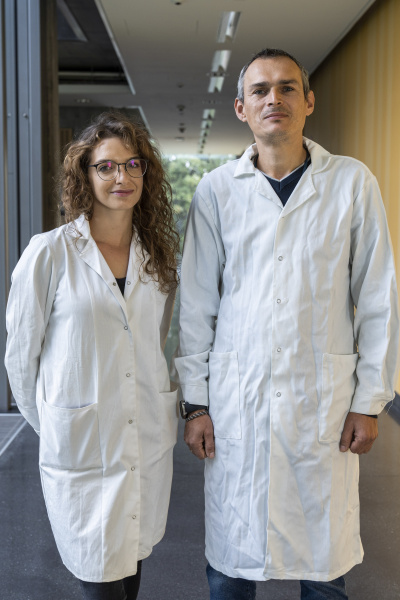Another success for the invention ‘Nimesulide salts and method for obtaining nimesulide salt crystals’, developed by prof. Artur Sikorski and mgr inż. Małgorzata Rybczyńska - the European Patent Office has issued a decision to grant a patent. Nimesulide is a non-steroidal anti-inflammatory drug (NSAID) with anti-inflammatory, analgesic and antipyretic properties. The invention concerns new crystalline forms of the drug with improved physicochemical parameters (including solubility and stability), which may lead to a reduction in the necessary doses, an extension of the interval between them, and a reduction in the cost of pharmaceutical production.

Nimesulide is one of the anti-inflammatory and analgesic drugs used in dozens of countries around the world, available mainly on prescription. This drug has anti-inflammatory, analgesic and antipyretic properties. Used in specific conditions, it is more effective than other NSAIDs.
‘According to statistics, non-steroidal anti-inflammatory drugs account for about 10% of all analgesic, anti-inflammatory and antipyretic drugs prescribed by doctors worldwide. They are available in various forms - tablets, granules, patches, gels, ointments, suppositories and others. We reach for them when we feel pain, catch an infection or have a fever. For these reasons, work on NSAID drugs is an important social challenge for scientists,’ says prof. Artur Sikorski.
One of the biggest challenges facing pharmaceutical manufacturers is the poor solubility of drugs in aqueous solutions. It is estimated that over 40% of pharmaceutically active chemical compounds have very low solubility in water, which limits their therapeutic effectiveness.
In response to this problem, scientists have developed multi-component crystals containing nimesulide, obtaining a European patent.
The compounds obtained have better physicochemical properties compared to pure nimesulide, which is an advantage over commercially available pharmaceuticals containing this drug, making it possible, among other things, to reduce the required dose of the drug, extend the interval between doses, and administer the drug by alternative routes (not only orally).
The new forms of nimesulide may contribute to:
- improving the comfort and safety of therapy,
- reducing side effects,
- introducing more effective and affordable drugs to the market.
‘Obtaining a European patent confirms the innovativeness and implementation potential of the solution,’ says Katarzyna Gronowska, Director of the Technology Transfer Office at the University of Gdańsk. The TTO UG coordinates intellectual property protection processes at the University of Gdańsk.
